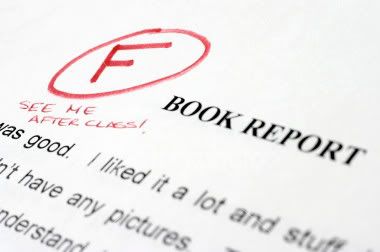When you have BAD Grades
Sunday, August 20, 2006 by simpleblob
 If there is one true teaching of Buddha, it is this: what you did in the past will follow you long after you forgetten them.
If there is one true teaching of Buddha, it is this: what you did in the past will follow you long after you forgetten them.Likewise, my bad karma is my grade.
When I was looking for the general requirement for Graduate Schools, I noticed that I couldn't get pass any of the GPA requirement (for top-tier school). I want to get in top schools nonetheless, so what should I do to fix this? Here are the choices I can think of:
1. Get another degree first
- In my country, this is called "chooptua" or (figurative) coating yourself with shiny new degree to hide the ugliness underneath. I prefer to think of it as cleansing and reinventing yourself. This is overall the most reasonable choice. However, you must be financially secure (rich) to do this.
2. Get a stellar score on GMAT,GRE,TOEFL, or any test that the schools accept
- this way is quite difficult for a normal person, but it won't be much of a problem if you are smart and diligent enough (very)
3. Get an outstanding letter of recommendation (preferably from a famous professor)
- A glowing letter can easily tips the scale of the application commitee. It is another way to say that "I have an evidences that I'm qualified, besides my grades."
4. Experiences in the field
- How important this is depends on your position, the company you work for, times spent, and the field you're going to apply.
For me, I've already got some of #4. I hope to do #2, then get into #1 which also make #3 possible,all the while reinforcing #4.
Capisci?



